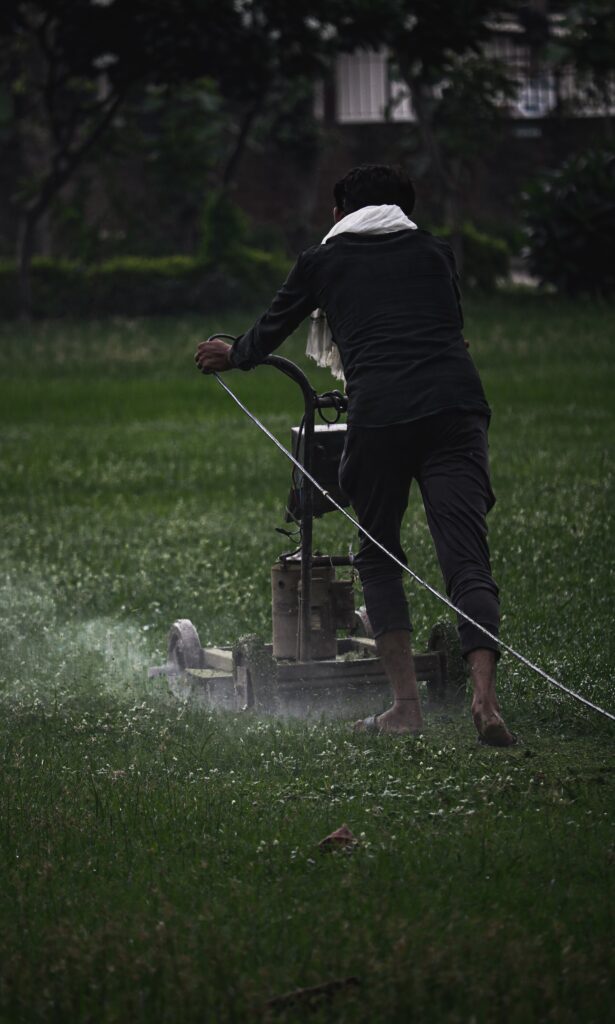Roundup is a weed killer from a company called Monsanto. Monsanto is owned by an organization called Bayer. Roundup is a glyphosate-based herbicide, and exposure to the chemical is believed to cause cancer.
If you or anyone close to you has been diagnosed with cancer and think exposure to the weedkiller is a possible reason, you must consider filing a Roundup Lawsuit.
You may have used a Roundup product at some point in your life. That is a product to get rid of troublesome weeds in your garden or yard. Roundup weed killer is used for both commercial and personal purposes.
Despite its effectiveness, certain studies have indicated that the product’s ingredients may be carcinogenic. You might be able to sue Bayer, who currently owns Roundup, for damages if your cancer diagnosis was brought on by or connected to your usage of the herbicide. The information that follows provides an update on current legal developments and self-defense tips.
A little Roundup History
Roundup, as a weed killer ever sold, uses glyphosate as its most active ingredient. The majority of grasses and broadleaf plants are toxic to glyphosate. Glyphosate is a widely used herbicide that controls broadleaf weeds and grasses. It has been registered as a pesticide in the U.S. since 1974. However, instead of focusing on specific weeds or plants, it destroys the majority of plants it comes into touch with.
The product was created by Monsanto, a now-defunct business. Because glyphosate destroys everything it comes into contact with, Monsanto created plant seeds that were genetically altered to withstand Roundup’s harm. This is when residential Roundup sales increased rapidly.
Roundup was bought by Bayer in 2018. By that time, dozens of consumer claims claiming Roundup caused cancer had been filed. Non-Hodgkin lymphoma is the malignancy most frequently linked to Roundup. In a 2023 commitment, Bayer stated that it will start substituting “new formulations that rely on alternative active ingredients” for “its glyphosate-based products in the U.S. residential Lawn & Garden market.”
How Does Roundup Cause Cancer?
A key ingredient of Roundup is glyphosate. Glyphosate-based herbicides are used widely across the world. In recent years, scientific research studies have revealed that continuous exposure to the chemical can increase the risk of developing non-Hodgkin lymphoma by 41%.
A few years back, IARC (International Agency for Research on Cancer) claimed that glyphosate is a probable carcinogen.
The IARC categorized glyphosate as potentially carcinogenic to humans, which essentially means that this toxin may cause cancer.
However, Bayer brushed aside the claim by stating that the scientists involved in the study did not consider other alternative research studies.
On the other hand, the US Environmental Protection Agency (EPA) said glyphosate does not pose a health risk to humans as long as people use it according to the directions. They even went so far as to state that the chemical doesn’t cause cancer in humans.
Does Roundup causes Cancer?
According to research from the University of Washington, glyphosate exposure elevated a person’s chance of non-Hodgkin’s lymphoma by 41% which is considered a significant figure.
According to recent data from the Center for Disease Control and Prevention (CDC), up to 80% of Americans may have Roundup residues in their urine, indicating they have been exposed to it. Given that 200 million pounds of Roundup are sprayed on American crops each year, it is not unexpected that the majority of people have come into contact with it.
You may have an increased chance of developing cancer if you have ever used Roundup, even just once. Keep an eye out for signs by visiting your doctor frequently.
Who Can File a Roundup Weed Killer Cancer Lawsuit?
There are no rigid rules or conditions to be eligible for suing Bayer against the herbicide. If you believe you have been exposed to the weed killer and the glyphosate has caused cancer, then you must seek legal advice immediately.
Over 150,000 cases have been filed thus far against Bayer, claiming that Roundup has caused different forms of cancer such as non-Hodgkin’s lymphoma (NHL) and chronic lymphocytic leukemia (CLL).
People who have filed lawsuits against Roundup and Bayer come from different backgrounds and nationalities. The only common factor between these people is their use of Roundup for multiple years. The first individual to win against Roundup was a groundskeeper called Dwayne Johnson. Dwayne was exposed to Roundup for many years in his job.
The plaintiff’s lawyers showed he was exposed to glyphosate repeatedly, and that was the cause of his cancer.
While the jury did not find that the use of Roundup caused the individual’s cancer, it found that Monsanto and Bayer didn’t do enough to warn the plaintiff that Roundup could cause cancer. Because of that failure, the jury awarded the plaintiff nearly $300 million in damages.
The jury ruled in his favor, and he received a multi-million-dollar compensation from Monsanto.
Following that lawsuit, two other high-profile suits resulted in hefty verdicts for people believed to be damaged by Roundup. A person who used Roundup for more than three decades in one instance. A court eventually reduced the jury’s $2 billion verdict to $86.7 million after concluding that the jury’s original award was excessive.
In the second instance, a man filed a lawsuit against Bayer after discovering he had non-Hodgkin lymphoma as a result of using Roundup on his lawn for more than 20 years. The person received a punitive damages award of $75 million from the jury. Later, this was lowered to $20 million.
Bayer has also prevailed in a number of lawsuits. A jury in California concluded that the business was not to blame for a child’s diagnosis of Burkitt’s lymphoma. The jury concluded that the child’s cancer diagnosis was not significantly influenced by the usage of Roundup.
To be eligible for the Roundup Weed Killer Cancer Lawsuit, you must provide ample evidence to show your exposure to the chemical and medical reports that support your cancer diagnosis.
What to Do If You Have Been Diagnosed with Cancer After Using Roundup?
If you have non-Hodgkin lymphoma or chronic lymphocytic leukemia and have been exposed to Roundup for a few years, then you must speak to an attorney immediately. An attorney who is experienced with Roundup lawsuits can help you receive the compensation you deserve.
To file a Round lawsuit, follow the below steps:
Step 1: Gather any information that proves your exposure to Roundup.
Step 2: Collect all medical reports related to your cancer diagnosis.
Step 3: Find an experienced law firm to connect you with a Roundup cancer lawsuit lawyer.
Step 4: Book a free consultation to understand the different legal options available for your case. Your attorney can review your claim in detail and suggest the most suitable ways to proceed forward.
Step 5: Your attorney can provide you with the best advice. Seek legal guidance and assistance at every step of the process.
Influential factor to a Roundup Legal Case
It’s crucial to confirm your eligibility for your claim as soon as possible if you or a loved one has been diagnosed with a condition after using Roundup. Here are some elements that may play a role in your situation.
Evidence That Monsanto Failed to Issue a Health Risk Warning
In the past, the corporation has been accused of negligence, deceptive advertising, and failing to warn customers about the potential risks of glyphosate exposure. In the past, litigants have claimed that Monsanto misconstrued or disregarded safety information during the production, distribution, and sale of the herbicide. Your claim would probably need to include evidence of the company’s failure to issue the proper warnings, which put consumers’ health at danger.
Evidence of Product Design Negligence
The plaintiff would have to show that Monsanto was negligent in the product design and that this negligence caused the plaintiff’s harm in addition to the company’s failure to warn consumers.
Evidence That You Utilized Roundup (Glyphosate)
Obtain proof that you came into contact with Roundup while at work, on the farm, or even at home. These could be old bottles, purchase documents, standard operating procedures (if you were exposed at work), or invoices for landscaping.
Level and Duration of Exposure
You might have a stronger case if you were exposed to the herbicide over a long period of time and continuously. For instance, you stand a better chance of winning the lawsuit if you regularly spend time working on a farm where the herbicide is used than if you’ve only ever visited a park where the herbicide was applied to the foliage.
Period between exposure and diagnosis?
The interval between your exposure to Roundup and the day of your diagnosis may be taken into account by the court as the latency period. According to one study, lymphoma linked to high-dose pesticide exposure typically takes at least two years to manifest. Therefore, you must be sure that the period of time between your exposure and diagnosis falls inside this heading.
Evidence Connecting the Exposure to Your Diagnosis
The Roundup exposure that caused your sickness should be supported by scientific evidence. This is conceivably the most significant piece of evidence you may collect to help the court rule in your favor.
Additional Health Conditions
Your situation may be considerably impacted by additional medical conditions known as comorbidities that increase your risk of developing cancer or another sickness. For instance, if you smoke cigarettes, are exposed to carcinogens besides glyphosate, have a history of cancer, take immunosuppressants, or have HIV/AIDS, your chances of receiving financial compensation may be reduced.
Conclusion
You may be a soil scientist, a groundskeeper, or a landscaper and have an increased risk of exposure to glyphosate. Moreover, anyone using the product for personal garden maintenance can also face problems due to direct contact with the chemical.
Irrespective of your profession, if you believe that Roundup is the reason behind your illness, take the necessary legal action without delay.




